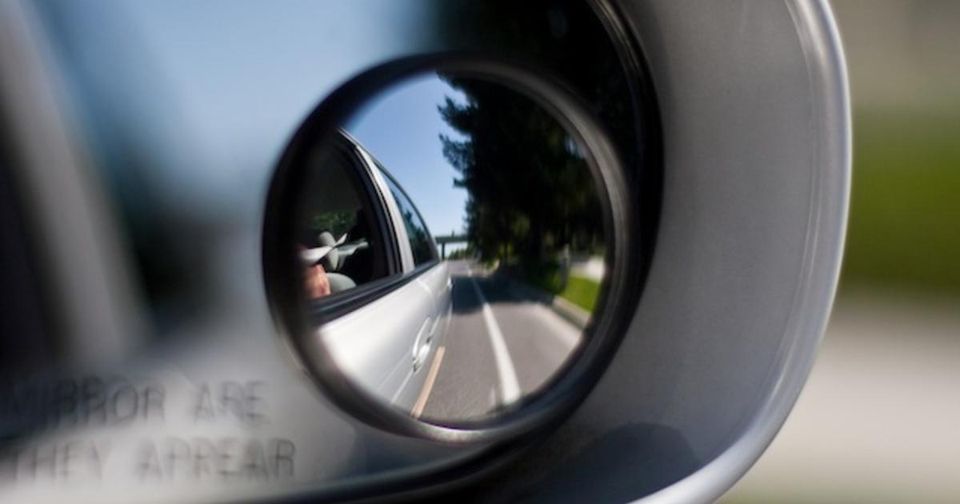Blind spots

I think most of us believe that our senses are accurate and our mental faculties are sound. This may be true for the most part, but not always. It's been demonstrated that we all have blind spots - both physical and mental ones.
Physical blind spots are easier to demonstrate. Consider the following image:

Assuming you can view GIFs, then in the above image, you should see a flashing red rabbit in the circle on the left. Close your right eye, and stare intently at the dot on the right with your left eye. Then, slowly move towards the screen. At some point, the red rabbit should disappear completely.
Everyone has these physical blind spots. Sometimes they could be dangerous. For example, the side rearview mirrors of a car don't cover the entire range of vision behind us, and we could collide with a car in our blind spot if we change lanes without physically turning our head to check whether we're in the clear.
Mental blind spots are a bit more difficult to demonstrate. I'll give a recent example of my discovery of a personal blind spot.
Some context: In the United States, a song's position on the Billboard Hot 100 has traditionally been an indication of its popularity, and only a few songs make it to the top of the list (#1) each year. Recently - out of curiosity - I explored what songs and artists are popular these days by checking what has made it to #1 in the past two years.
I was very confused when I discovered that a South Korean boy band, BTS, spent the most weeks at #1 in 2020/2021. They beat out Drake, The Weeknd, Ariana Grande, Taylor Swift... it was a bit surreal.
I went to YouTube to view the music video for one of their popular songs (Dynamite) to make sure that they're really a South Korean boy band and not a western act in disguise. Yep, they're really a South Korean boy band.
I couldn't understand how BTS, which hails from a non-English speaking country, became so popular with American teenagers and young adults - and yet, the facts were staring me in the face.
There can only be one explanation: I have a blind spot. I'm no longer in touch with American culture, no longer part of the younger generation, and therefore I don't understand what's popular.
Blind spots are particularly dangerous because we usually don't know they exist, and most people don't volunteer to tell us about them.
My line of work involves working with students in their early 20's, so now I'm quite sure that they see many things differently from how I see them. This could impact any number of relevant factors - from how I might promote my business to how I frame my advice to students.
I'm reminded of how I found it so difficult to listen to my parents when I was younger; looking back, much of their advice was wrong, but much of it was correct as well. The challenge, I suppose, is to tell which is which when it still mattered.
I think the best way to address the blind spot problem is to diligently seek out believable people who are from different age groups, cultures, and backgrounds. The importance of diversity has been written about ad nauseum, but it's true. We need other people whom we trust to tell us about our blind spots.




